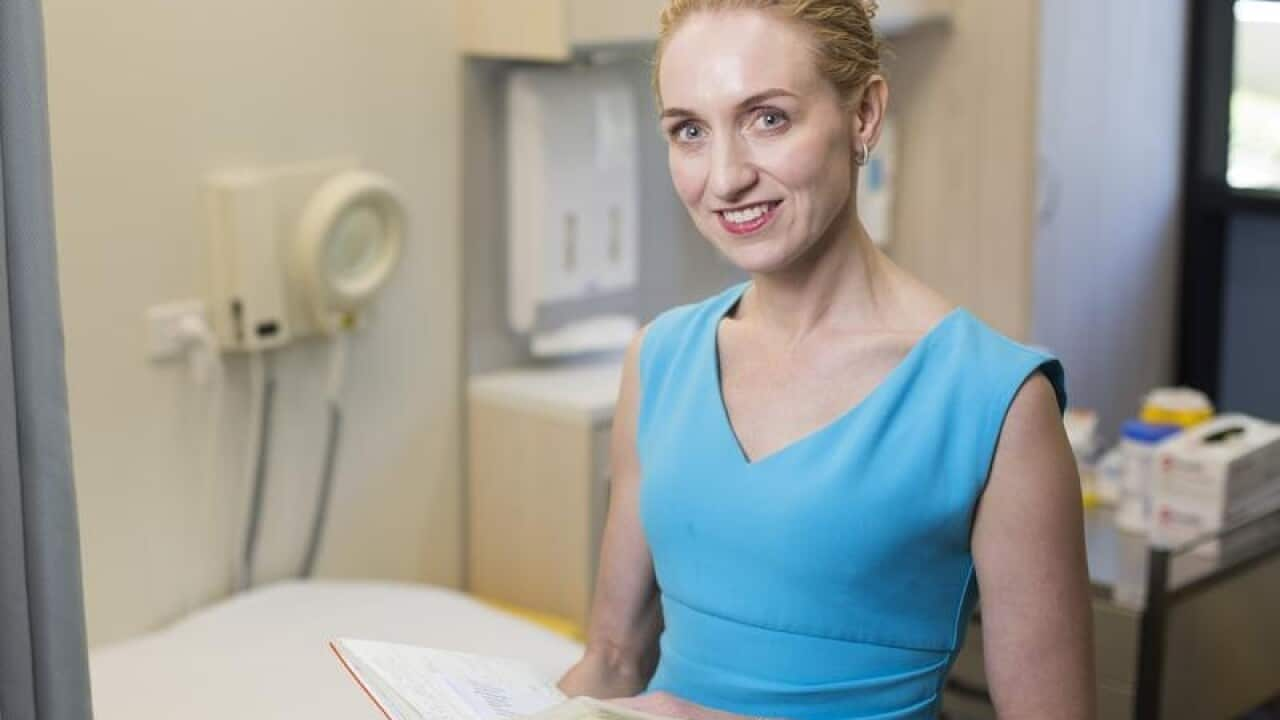Simon Balderstone was on a six-day trek in the Himalayas, Nepal, last year when he broke a vertebrae in his back.
The former journalist and ex-media advisor to the Hawke and Keating governments had been experiencing soreness in his back prior to the injury and upon his return to Australia, MRI scans revealed he had metastasis melanoma in his spine.
The bones in his back had been weakened by the disease, which had returned six months after he was given the all clear from his original melanoma diagnosis.
A decade ago, a person diagnosed with advance stage 4 melanoma had no hope of survival.
Fortunately for Simon, who grew up on a farm spending days out in the sun without a hat or shirt on, he has been given hope thanks to research being done at the Melanoma Institute Australia.
The 64-year-old was placed on a Phase I first-in-humans clinical trial of a new immunotherapy, called MK-4166, in combination with pembrolizumab (Keytruda).
Only 20 melanoma patients from around the world are on the trial and principle investigator Professor Georgina Long says so far, the results have been "very promising", including for Simon.
"He had melanoma cancer cells that had spread to the bone, to the liver, to various soft tissues around the body and he has had an excellent, excellent response," Professor Long said on Wednesday.
While it is still early days, being pain free has been the best outcome for Simon.
"I'm hanging in there; so far so good. Obviously a long way to go, but initial indications are that it's having an effect," he said.
"The main thing is, I'm not in pain."
In Australia, about 30 Australians will be diagnosed with melanoma every day and more than 1,200 will die from the disease each year.
Professor Long says the prognosis for melanoma has been getting better - with a 40 to 50 per cent 'cure' rate - but there is still a lot of work to do, which is why people need to support Melanoma March, to raise vital awareness and life-saving funds for melanoma research.
"Although we are doing a lot of great work and Simon is responding beautifully on this trial, the reason we have such a massive trial program is that there are still people who, for them, nothing works and are dying in front of our eyes," Professor Long said.
"We shouldn't stop until we've got zero deaths from melanoma."
Twenty one marches will occur across the country, including major city events in Sydney and Canberra, Brisbane and Perth during the month of March.
Simon - who works for charity the Australian Himalayan Foundation - will be participating in the Manly march, on Sydney's northern beaches on Sunday.
To find more about a march near you visit www.melanomamarch.org.au.









